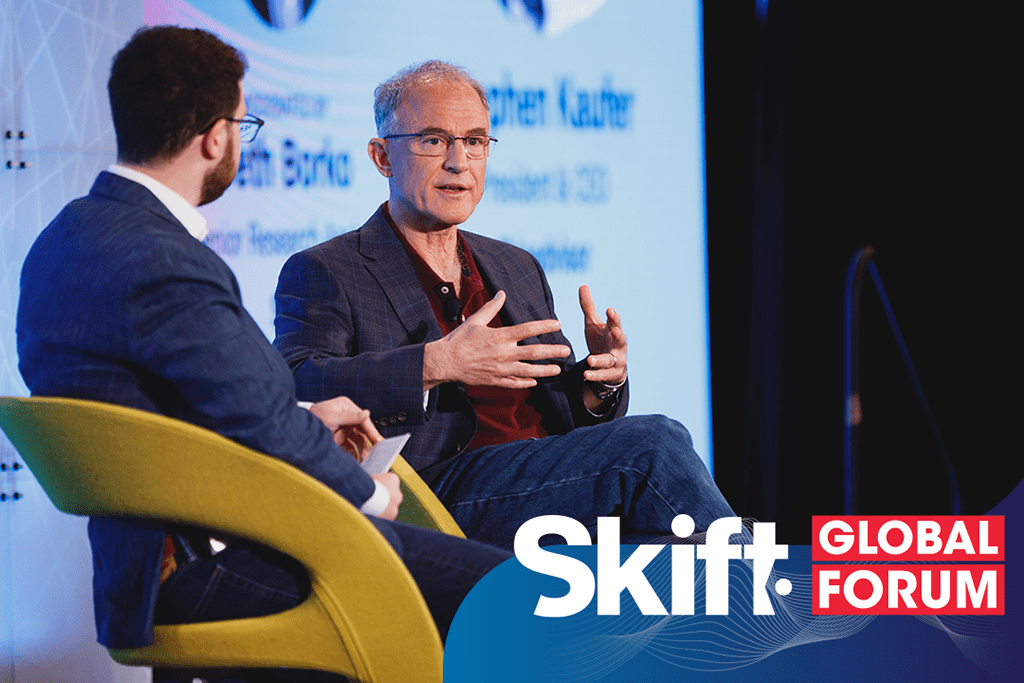Full Video: Tripadvisor CEO Stephen Kaufer at Skift Global Forum 2021

Skift Take
Tripadvisor President and CEO Stephen Kaufer spoke with Skift Senior Research Analyst Seth Borko at Skift Global Forum 2021. The two discussed the theme “A Return to Experience: Building New Models for Travel’s Future.”
You can watch a full video of their discussion as well as read a transcript of it, below.
https://www.youtube.com/watch?v=klmMvxVOE98Seth Borko: Hello, everybody. Thank you for sticking with us this afternoon. Steve, thank you so much for joining us.
Stephen Kaufer: My pleasure, absolutely.
Borko: I'll just remind everyone. I think we're going to try and take some questions with the session. So if you want to submit them online, we'll try and get some at the end if we have time.
Kaufer: Perfect.
Borko: Steve, I want to start talking a bit about the elephant in the room, which is TripAdvisor Plus. So that is your travel membership subscription club, $99 a year. And you just made some changes to it this week, right?
Kaufer: Yes.
Borko: So it used to be $99 a year, and you would get hotel savings and now you're kind of… instead of kind of getting the savings, you're going to sell hotels at the best available rate and consumers are going to get funds. Is you what you're calling it, right? Can you tell us a little bit more about that?
Kaufer: Sure. I would say consumers are actually likely to be getting the same savings just at a slightly different time. So we did a bunch of research on how we could make our product better. This is what we do all the time with all products. And over the past few months, we figured out a few things. One, choice is really important. We want to be able to offer as many hotels with as much savings as we can. Two, we want to extend the engagement with our travelers so that they appreciate — not kind of just a bit of money savings here — but also kind of expand the imagination. What can they do with this money that they save? How can they … our mission is how can we help them make them a better traveler? And we still think we're absolutely convinced this program is a fantastic way to do that.
So the changes in a nutshell is instead of the instant discount up front, we're putting that same discount back at the end of the stay. So after you get checked in — again, this is a vision for the product after you get… it's not launched yet. After you get the… after you check in Vacation F

